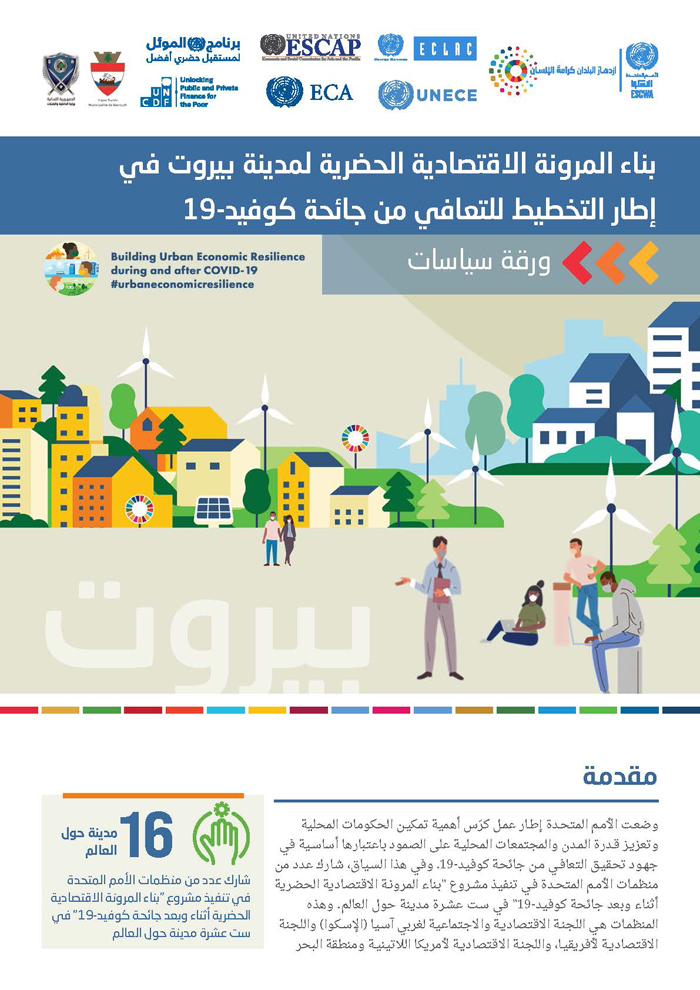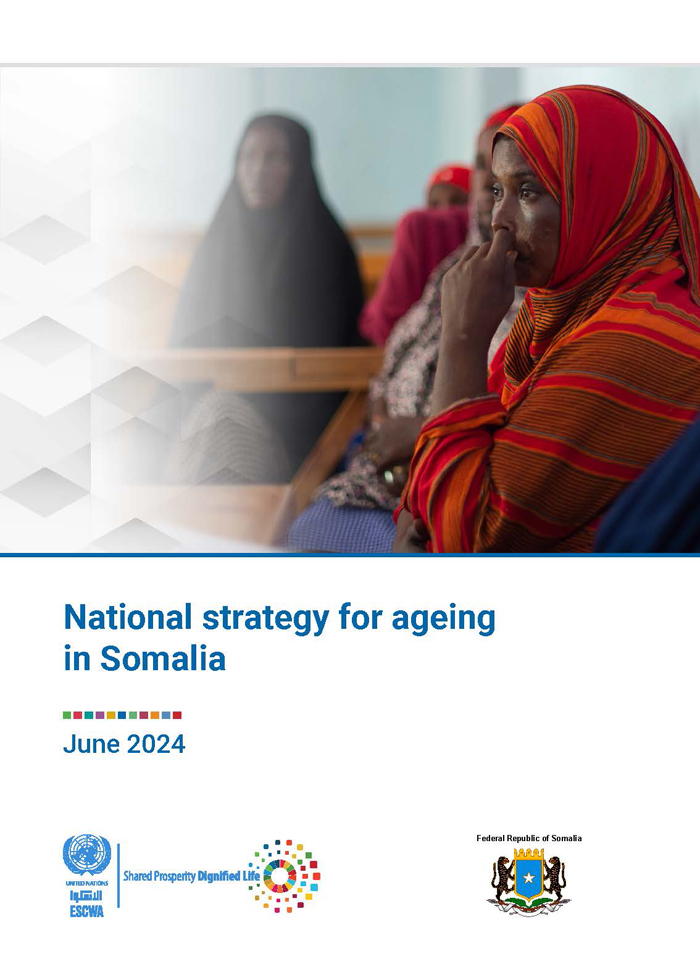
ESCWA Publication: E/ESCWA/CL2.GPID/2022/TP.17/Policy Brief
Country: Lebanese Republic
Publication Type: Policy briefs
Cluster: Gender Justice, Population and Inclusive Development
Focus Area: Inclusive development
Initiatives: Sustainable urban development, COVID-19 Stimulus Tracker
SDGs: Goal 9: Industry, Innovation and Infrastructure, Goal 11: Sustainable Cities and Communities
Keywords: Urban development, Urban economics, Covid-19, Local government, Cities, Reconstruction, Programme planning, Technical cooperation, Local government, Sustainable development, Finance, Economic conditions, Labour market, Resilience
Building urban economic resilience in the city of Beirut within the framework of recovery planning during and after COVID-19
January 2023
The report reviews the plan to building urban economic resilience in the city of Beirut within the framework of the project "Building Urban Economic Resilience during and after the COVID-19", which was implemented in sixteen cities around the world, including three Arab cities, namely Alexandria, Beirut and Kuwait. In the context of this project, the Economic Recovery and Urban Resilience Tool was developed as a diagnostic and planning tool for building urban resilience to withstand economic shocks resulting from global developments beyond the control of local and national governments. The tool was applied to the City of Beirut and showed a poor to moderate performance. The diagnosis also shows that all areas of resilience require improvement, particularly local economic governance.
The report concludes with policy recommendations for building economic recovery and resilience, including the implementation of detailed and integrated actions to improve the economic and social conditions in the city and ensure sustainability. With the lack of a coherent vision for economic resilience in the past local development actions in Beirut, a plan has been developed to harmonize proposals presented to Beirut Municipal Council, and it can be built upon to introduce a sustainable action path. This plan would increase the awareness of decision makers of the sustainability and multiplier effect of local authority actions.
Related content
Inclusive development
,
The report reviews the plan to building urban economic resilience in the city of Beirut within the framework of the project "Building Urban Economic Resilience during and after the COVID-19", which was implemented in sixteen cities around the world, including three Arab cities, namely Alexandria, Beirut and Kuwait. In the context of this project, the Economic Recovery and Urban Resilience Tool was developed as a diagnostic and planning tool for building urban resilience to withstand economic shocks resulting from global developments beyond the control of local and national governments. The tool was applied to the City of Beirut and showed a poor to moderate performance. The diagnosis also shows that all areas of resilience require improvement, particularly local economic governance.
The report concludes with policy recommendations for building economic recovery and resilience, including the implementation of detailed and integrated actions to improve the economic and social conditions in the city and ensure sustainability. With the lack of a coherent vision for economic resilience in the past local development actions in Beirut, a plan has been developed to harmonize proposals presented to Beirut Municipal Council, and it can be built upon to introduce a sustainable action path. This plan would increase the awareness of decision makers of the sustainability and multiplier effect of local authority actions.



